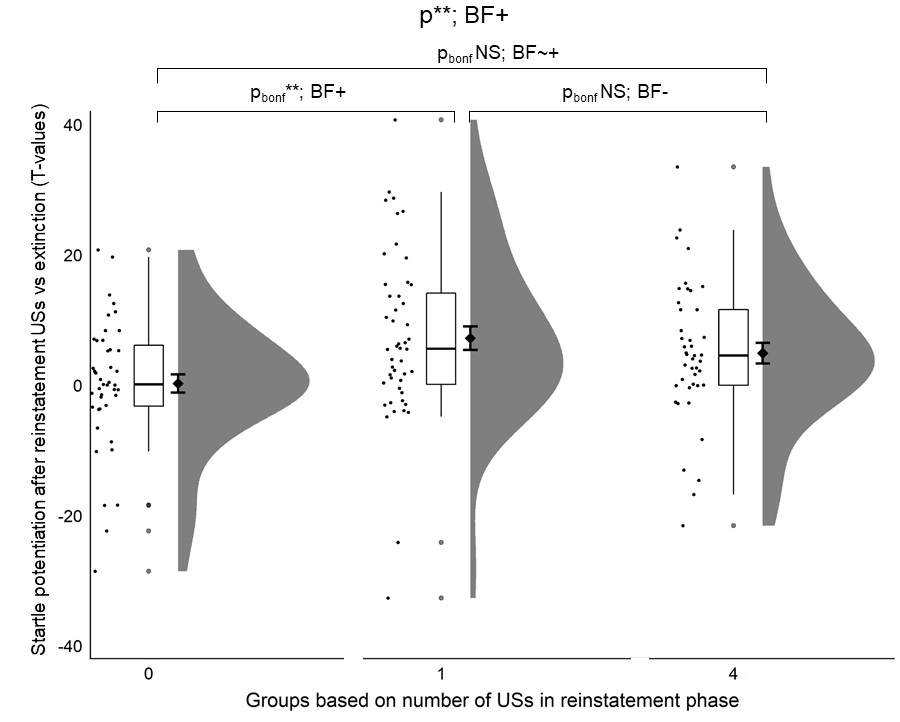Experimental paradigms used to study reinstatement of fear in humans are characterized by procedural heterogeneity. Reinstatement protocols involve unexpected (re)presentations of the unconditioned stimulus (USs)after fear extinction training. Here, we address the number ofreinstatement USs administered as a potential boundary condition that may explain divergent findings in the field. A sample of 171 participants is exposed to a fear acquisition training, immediate
extinction training, and reinstatement test experiment. Three groups
differing in the number of reinstatement US are employed: one (n = 57)
or four (n = 55) in experimental groups and zero (n = 59) in the control
group. We adopt Bayesian statistical approaches beyond classical null
hypothesis significance testing (NHST) to qualify evidence for or
against this potential methodological boundary condition in
reinstatement-induced return of fear. Startle potentiation to the
reinstatement administration context was increased for the RI–USone
compared to the RI–USzero group, supporting the role of context
conditioning in reinstatement. This effect was weaker in the RI–USfour
group. This, however, did not transfer to responding to conditioned
stimuli during the return of fear-test: no evidence for an effect of the
number of reinstatement USs (zero, one, four) was observed in
behavioral or physiological measures. In sum, our results speak against the number of reinstatement USs as a potential boundary condition in experimentally induced return of fear in humans. This may challenge what we think we know about the reinstatement phenomenon in humans and call for critical reconsideration of paradigms as well as mechanisms that may underlie some reinstatement effects in the literature.


